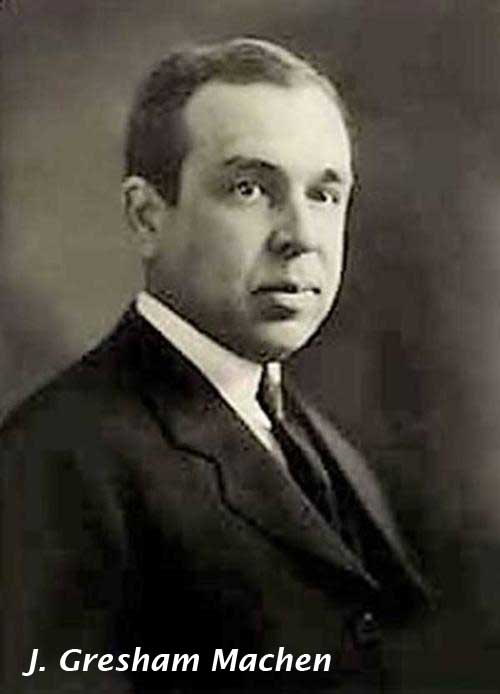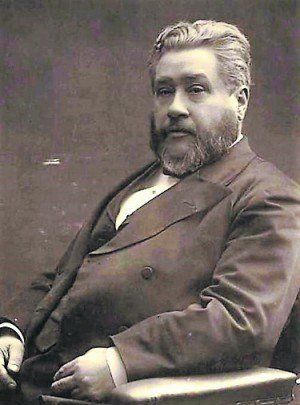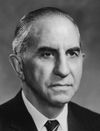Continued from Contending for the faith (part 1)
The church in the eighteenth century suffered from the attack of atheistic philosophers, but in the nineteenth century there was an even more subtle attack that came from within.
Higher Criticism and the theory of evolution cast doubt upon the accuracy of the Bible. So-called Christian scholars, particularly in the Free Church of Scotland, thought they could accommodate these views with continued evangelical belief.
Deception
Their approach came to be described as the ‘new apologetic’; they thought they were providing a basis for faith more stable than ever before. The result was that they were the unconscious instruments of a deception, and the author of that deception was one whose existence they did not seem to recognise, even the devil.
Along with this trend the church began to make light of error. Horatius Bonar warned against this: ‘The spirit of the age makes light of error, as if it were not sin. Even some who call themselves Christians have lost their dread of error, and are hurrying on from opinion to opinion, exulting in their freedom from old fetters and trammels, reckoning themselves peculiarly honest and unprejudiced.
‘Alas for truth in such a case! How can it be reached? Alas for the love of truth! How can it exist where there is no fear of error?’
We see that when churches embrace a lie rather than God’s truth there is an inevitable spiritual and moral decline. R. L. Dabney wrote, towards the end of the nineteenth century, ‘While German scholarship has been busy with its labours, it has suffered almost a whole nation to lapse into a semi-heathenish condition’.
In the same era C. H. Spurgeon concluded, ‘Modern criticism, like modern theology, is like the sirocco that blasts and burns. It is without dew or suction, it proves itself to be unblest of God and unblessing to men’.
Challenges
What can we do to reverse the tide and recover what has been lost? The following considerations must be basic to any hope of change.
We must uphold the truth
We have to be convinced that error and heresy are no trivial matters according to Scripture. While a special duty lies on pastors and elders, all believers are to be steadfast in maintaining and defending even to death the faith ‘once delivered to the saints’.
John Brown of Haddington said, ‘The Scripture represents erroneous persons as dogs, wolves, deceitful workers, ministers of Satan, deceivers, liars and evil men. Error is false of itself, fathers falsehood upon God, is the “doctrine of devils” and “works of the flesh”, excluding men from the kingdom of God.
‘It mars the purity, order, union and fellowship of the church; leads men to blaspheme God, murder souls and bring forth abominable practices’. He goes on to say ‘Good men are often too condescending to erroneous teachers’.
In this connection, words of the late Professor John Murray are timely: ‘We too readily become the victims of a charity [love] that denies the exclusiveness of the gospel, the charity that assumes that decent, respectable, friendly people are not heirs of damnation.

‘If we are governed by that charity, it is because we have not been captivated by the love of Christ. And if we are inclined to lend some sympathy to that charity, it is because our love to Christ has been waxing cold and has not been fanned by Christ’s love to us’.
The amiable John Newton made it a rule never to attack error, nor warn his people against it. He said, ‘The best method of defeating heresy is by establishing the truth. One proposes to fill a bushel with tares; now, if I can fill it first with wheat, I shall defeat his attempts’.
In contrast to that, John Calvin maintained that ministers have two voices. One is for feeding the sheep and the other is for warding off wolves. And when wolves get in, they must be driven out. Luther in similar vein declared, ‘He therefore is a faithful shepherd who not only feeds but also guards the sheep. This is done when he finds out errors and heresies’.
We must recover doctrine and discernment
We have to recover doctrine in the church. The present climate of opinion is against creeds and confessions.
It was the inroads of liberalism in the church that brought about the demise of doctrine. Liberals argued that Christianity is not a system of doctrine but a way of life. The ecumenical movement furthered that trend in declaring it is doctrine that divides.
In the great battle for orthodoxy in the early twentieth century in America, J. Gresham Machen appeared as the champion defender of the faith. He had to counter liberalism. He made it abundantly clear that what lay behind the problem was doctrinal indifferentism in the church: ‘It is often said that the divided condition of Christendom is an evil and so it is. But the evil consists in the existence of the errors which cause the divisions and not at all in the recognition of those errors when once they exist’.
Dr Carl Trueman, in speaking of the stance taken by Machen, emphasises the importance of the doctrine penetrating from the pulpit to the pew: ‘The history of the church is peppered with examples of churches which enjoyed powerful, faithful preaching for many years, and yet which all but collapsed into doctrinal apathy and even heresy on the retirement or the death of their minister’.
We must be militant against error
We cannot remain silent when God’s name is blasphemed. The tolerance that condones error is wrong. Christ condemned the church in Thyatira for tolerating a woman teacher named Jezebel.
John Knox cried, ‘O Lord eternal! Move and govern my tongue to speak the truth’. He saw that the church’s supreme duty is to see that she offends not her God and her Saviour. He passionately hated that which destroys souls. He hated the system which blinded people to the necessity of faith and salvation by the blood of Jesus Christ.
We need to recover that mark of the church that is discipline. Said George Gillespie in 1649, ‘Get church discipline established and duly exercised, which is ordained to purge the church from false doctrine, Revelation 2:14, 20’.
We must separate from false teachers. C. H. Spurgeon said, ‘Fellowship with known and vital error is participation in sin’. We have spokesmen calling for the recovery of our national church, but what hope is there for that as long as false teaching goes unopposed and open criticism of the Bible continues unchecked?
Faithfulness
We must be faithful in the light of the future. There is a solemn word from Francis Schaeffer: ‘Let us never forget that we who stand in the historic stream of Christianity really believe that false doctrine, at those critical points where false doctrine is heresy, is not a small thing.
‘If we do not make clear by word and practice our position for truth as truth and against false doctrine, we are building a wall between the next generation and the gospel. And twenty years from now, men will point their finger back at us and say of us, this is the result of the flow of history’.
John J. Murray ministered in the Free Church Continuing (FCC) before retiring. He was Moderator of the FCC General Assembly in 2003.





